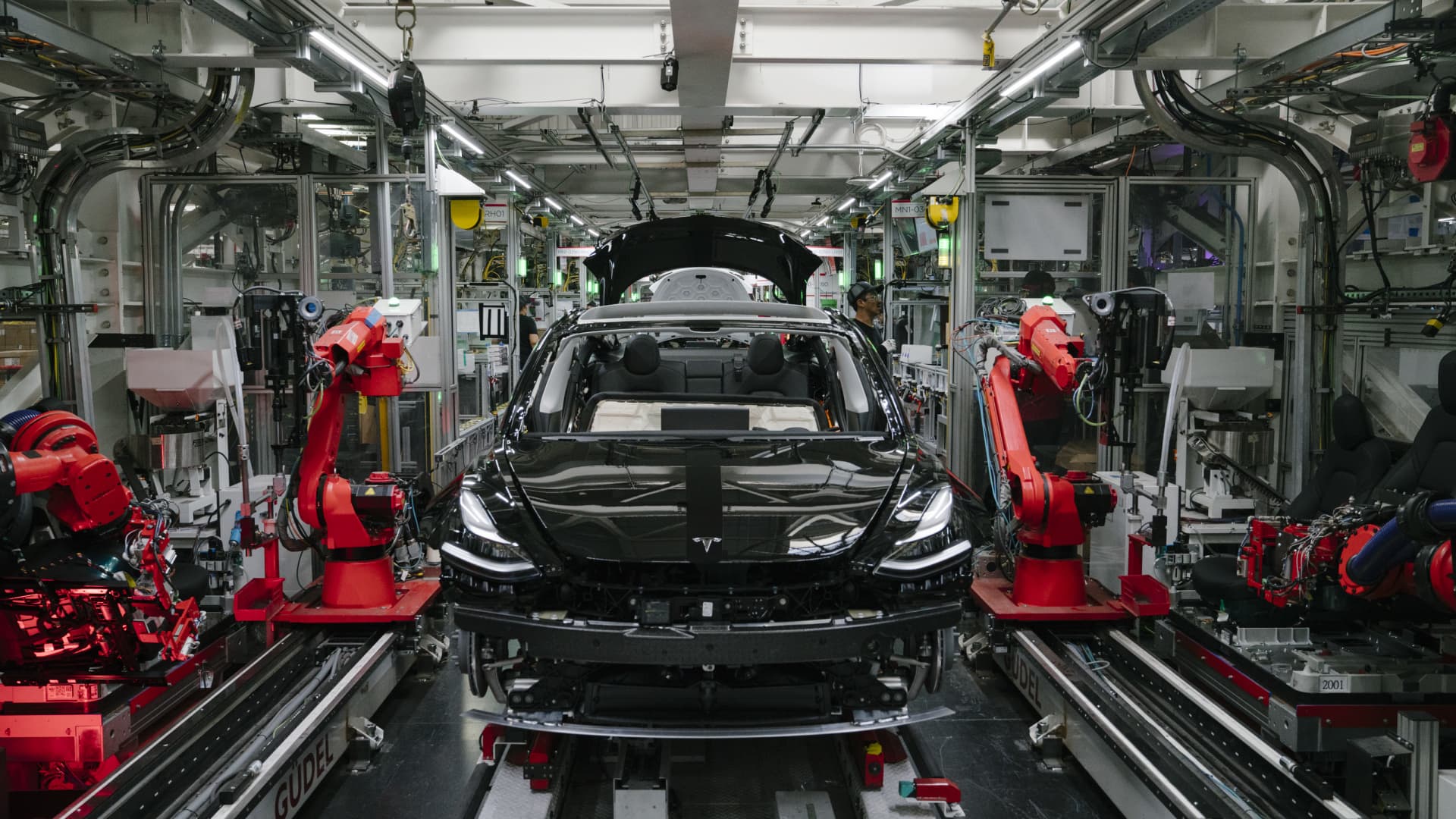
Goldman Sachs raised its forecasts for electric car sales and believes Tesla and General Motors will benefit from the trend. The Wall Street giant said in research note Tuesday it sees 13.5% of all car sales being battery-electric vehicles in the United States in 2024, compared to its previous forecast of 12.5%. It also expects BEVs to keep increasing their share of total sales in the future: 20% in 2025, 50% in 2030, and 85% by 2040. The Inflation Reduction Act , signed by President Joe Biden in August, will benefit carmakers such as Tesla and GM with $7,500 worth of tax credits per car, according to Goldman. Only carmakers that meet strict criteria, such as having their final assembly plants in North America and sourcing a large proportion of their battery components from the continent, will be eligible for the tax credit, according to the White House. Analysts at the bank say these restrictions mean Tesla has the potential to benefit from the program as the company already manufactures both cars and batteries in the United States. “Tesla could theoretically raise prices in the U.S. all else equal if its vehicles now qualify for credits,” the analysts said, suggesting that the company could pocket the tax credits as profit by keeping prices for consumers unchanged. But Tesla can choose to lower prices by passing on savings from efficiencies in manufacturing, the analysts said. Goldman said it now expects Tesla to make 2.4 million cars worldwide in 2024, up from its previous forecast of 2.275 million. The note to its clients revealed that the American investment bank had a buy rating on Tesla with a 12-month price target of $305 — a 40% upside from current trading levels. Tesla shares have fallen by more than 38% this year. According to the report, the tax credits will also benefit GM and Ford , although only “slightly.” Both automakers could upgrade existing infrastructure and build new EV manufacturing facilities at lower costs due to the tax credit, according to the research note. Goldman had a price target of $42 for General Motors’ buy-rated stock, giving it a 30% upside from the current share price. Ford meanwhile had a “neutral” rating with a price target of $13 — only a dollar and fifty cents above the current share price. Outlook for the whole sector Stock markets have been historically unkind to the established automakers heading into an economic slowdown, and with good reason. They are often the first to face the consumer’s ax as they are the second largest purchases after housing and are very sensitive to discretionary spending. Housing sales figures, which are also strongly correlated to vehicle sales, point toward a gloomy picture , according to Goldman. The National Association of Home Builders index dropped 6 points to 49 this month, its eighth straight monthly decline. “We believe key demand indicators for the auto and industrial end markets are generally weak and/or decelerating. That said, it’s important to note that some markets have been cyclically depressed due to supply constraints such as autos,” the analysts said. Their report said Google search traffic data showed that consumer demand for new vehicles remained “at a solid absolute level” but cautioned that not all automakers would likely see a favorable few months. “We’d continue be selective with OEMs as price and mix are likely to be headwinds in 2023 as supply/demand generally moderates, and we prefer TSLA and GM,” they said.
